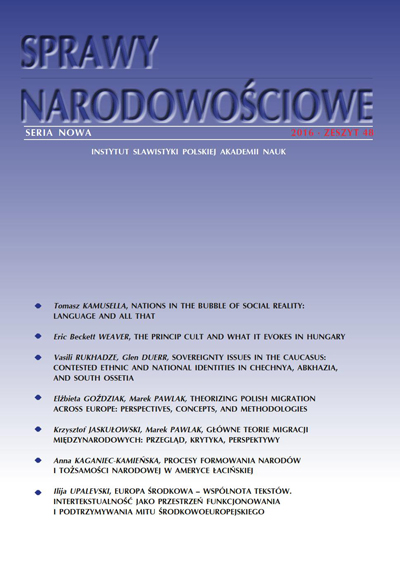Europa Środkowa – wspólnota tekstów. Intertekstualność jako przestrzeń funkcjonowania i podtrzymywania mitu środkowoeuropejskiego
Central Europe – a community of texts. Intertextuality as a plane of functioning and maintaining the myth of Central Europe
Author(s): Ilija UpalevskiSubject(s): Social Sciences, Sociology, Social development
Published by: Instytut Slawistyki Polskiej Akademii Nauk
Keywords: Central Europe; discourse community; intertextuality; national myth; the Habsburg myth; dissidents
Summary/Abstract: In this article I examine two primary (sets of) questions: 1. How, why and by whom the concept of Central Europe has been (re)constructed, (re)defined and (re)imagined within the field of literature in the course of the 20th century(?); and 2. Through what transformations this concept has gone during the major social and political shifts in the region(?). In order to do so I am employing Roland Barthes’ semiological approach on myth in the analysis of the texts in which concept and the myth of Central Europe is constituted. I argue that these texts, creating the myth of Central Europe, use/adopt/resemantize texts/signs which previously functioned in other semiological systems. While the so called Habsburg Myth is its core structural element, the myth of Central Europe adopts/reinterprets even such cultural texts in relation to which it stands in ideological opposition – for example the myth of national tragedy. Referring to the concept of discourse community, introduced and developed in the linguistics and literary theory by John Swales, as well as to the concept of intertextuality, I argue that Central Europe can be approached as a community of texts within which the notion of the Central-Europeanness is (re)evaluated, (re)imagined and thus historically maintained.
Journal: Sprawy Narodowościowe
- Issue Year: 2016
- Issue No: 48
- Page Range: 160-181
- Page Count: 22
- Language: Polish

